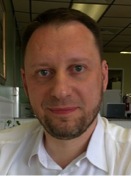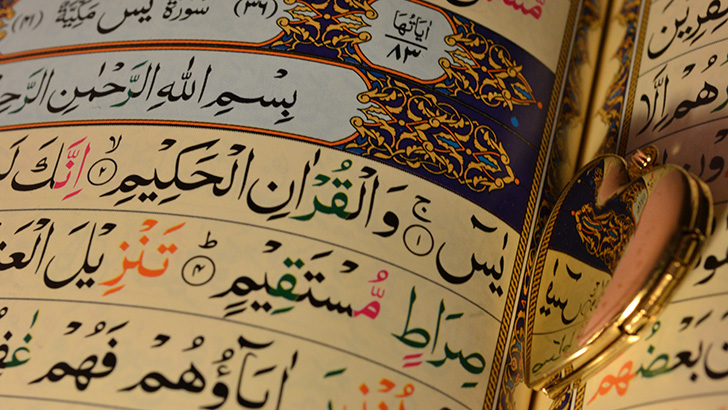International Institute of Islamic Thought and Its Role in Promoting Islamic Studies at Theological Seminaries
The Idea for the AAR Panel
The idea for organizing a panel at the American Academy of Religion 2015 Annual Meeting about teaching Islamic studies in theological seminaries came through sustained conversations that the International Institute of Islamic Thought had with several professors and administrators at these institutions—namely, Mark Toulouse and Nevin Reda of Emmanuel College, and Serene Jones and Jerusha Tanner Lamptey of Union Theological Seminary. Once basic components and ideas for the panel were in place, we reached out to several other colleagues who all immediately accepted our invitations. Thus, the proposal was put together mainly by Nevin, Jerusha, and myself.
The International Institute of Islamic Thought and the Study of Islam
The International Institute of Islamic Thought (IIIT) was established in 1981 as an academic and educational institution with the objectives of revival and reform of Islamic thought. The founders of the Institute maintained that at the core of the current problems afflicting the ummah (global Muslim community) was an intellectual crisis. That crisis could only be addressed through critical examination of Muslim heritage, which needed to be coupled with an in-depth critique of modern secular thought. The founders of IIIT also believed that Muslims should restore an integrated reading of revealed knowledge that comes from Islamic scriptures—the Qur’an and Sunnah (Prophet Muhammad’s examples)—and human knowledge, acquired through the humanities, social and natural sciences. This approach is known as “reading the two Books," a revealed Book (the Qur’an) and the book of nature. To that end, the IIIT advocates reform of education in Muslim societies (and elsewhere) that takes into account these integrated approaches to knowledge.
One of the founders of the IIIT, late Professor Ismail al-Faruqi (d.1986)—whose illustrious career spanned studying and teaching at Harvard, McGill, Syracuse, Indiana University, al-Azhar University in Cairo, and Temple University—founded the Study of Islam Section at the American Academy of Religion. In 1979, he helped convene, in his own words, "a very unusual meeting"—a gathering of Jewish, Christian, and Muslim academicians who engaged in what al-Faruqi later called, "a Trialogue of Abrahamic Faiths." A book by the same name was published in 1979, and later republished by IIIT in 1981. Positing the conversations among the Abrahamic faiths as a "trialogue," al-Faruqi invited us to think about multilateral approaches to the interfaith deliberations.
Al-Faruqi would not be surprised to find that such a trialogue continues to this day. What he would probably be amazed at is the new reality where the study of Islam has become an accepted norm at several well-known theological schools and seminaries in North America: Hartford Seminary, Emmanuel College, Union Theological Seminary, and Graduate Theological Union, among others.
Entrance into Theological Schools
Noticing this shift in theological education in North America—caused partly by greater acceptance of Muslims in the Western context but also by a decline, in many places, in Christian students' enrollment at theological schools—the IIIT took a firm decision to support Islamic studies within this new context. Our relationship with Hartford Seminary, spearheaded by visionary leadership at both institutions, has produced sustained conversations in Christian-Muslim dialogue, but it did not stop there. New programs were established, including a graduate certificate in imam and Muslim community leadership which seeks to graduate Muslim religious and community leaders who complement their Islamic knowledge with a firm grasp of North American religious contexts and realities. Another program, Muslim chaplaincy, took hold at Hartford and was heavily supported by IIIT. More recently, IIIT entered into a partnership with Union Theological Seminary by providing support for their newly formed program, Islam, Social Justice, and Interreligious Engagement.
To help these various programs and initiatives, IIIT has facilitated hiring of Muslim scholars of Islam in order to diversify theological schools and to empower Muslim voices within theological and seminary studies. The result has been, as is obvious from other contributions that emerged from this panel, an infusion of invigorating interfaith and intrafaith discussions. A score of Muslim students were admitted into these theological schools, adding to diversity of the student body and enriching course offerings across the theological and religious spectrum.
What makes teaching and studying Islam at theological schools attractive to IIIT is the fact that religious faith and commitments are welcome at these institutions. While scholars of religion at "secular" institutions engage seriously with questions of faith, they do not look favorably upon faith-based study of religious traditions. The underlying assumption is that faith-based study of religion is subjective and cannot be used in a methodologically objective fashion. Thus, normativity is eschewed, heteronormativity is elevated, heterodoxies are often seen as more attractive subjects of study than orthodoxies, and the whole idea of religions as systematic and coherent systems of belief is deconstructed and, sometimes, completely negated.
Another important dimension of studying Islam in the post-9/11 context is the increased securitization of Islam and Muslims. Funding started pouring in from the US Department of Defense and other security agencies to the chronically underfunded departments and schools of Middle Eastern and/or Islamic studies. The pressure was to understand Islam from a narrowly defined perspective that would help in waging the "war on terror." Thankfully, theological schools were not large recipients of such funding, and that fact allowed them to avoid the trap of securitizing Islam and Muslims. As a result, the approaches to studying Islam were not tainted by day-to-day politics and security needs of the nation-state. Theological schools remained, to a large extent, oases of nonsecuritized scholarship on Islam and Muslims.
The Way Forward
As more Muslim faculty and students continue joining and enrolling at theological seminaries, there will be more need to widen and deepen the scope of Islamic studies at such institutions. The Muslim population in North America has started showing more interest in religious studies, including at theological schools. This presents an opportunity to many such institutions to capitalize on this interest and begin offering Muslim studies. At the same time, there is a potential backlash from the traditional base on whom such schools have relied in the past: that theological schools are giving in too much to the Muslims. The administrators at these schools will have to tread a fine line between appeasing their older alumni/alumnae and donor base, while also trying to expand their reach to the Muslim population and their giving capacity. As North America is becoming more diverse and pluralistic, there is every reason for theological schools to move in that direction. This move will require a deep self-examination of theological commitments, the nature of the institutions, and ultimately a vision of what type of educational institution to be in the future.
 Ermin Sinanović is currently the Director of Research and Academic Programs at the International Institute of Islamic Thought (IIIT), where he is also the director of The Fairfax Institute. Before joining the IIIT, he was an assistant professor in the Department of Political Science at the United States Naval Academy in Annapolis, MD. He studied for an MA and a PhD in political science at the Maxwell School of Syracuse University. Sinanović obtained two BAs (one in Qur’an and Sunnah studies, the other in political science) from the International Islamic University Malaysia, and an MA (Islamic civilization) from the International Institute of Islamic Thought and Civilization (ISTAC) in Kuala Lumpur, Malaysia. His research interests include transnational Islamic revival, revival and reform in Islam, Islamic political thought, Southeast Asian politics, and Islam and politics in general. He speaks Bosnian, English, Arabic, and Malay.
Ermin Sinanović is currently the Director of Research and Academic Programs at the International Institute of Islamic Thought (IIIT), where he is also the director of The Fairfax Institute. Before joining the IIIT, he was an assistant professor in the Department of Political Science at the United States Naval Academy in Annapolis, MD. He studied for an MA and a PhD in political science at the Maxwell School of Syracuse University. Sinanović obtained two BAs (one in Qur’an and Sunnah studies, the other in political science) from the International Islamic University Malaysia, and an MA (Islamic civilization) from the International Institute of Islamic Thought and Civilization (ISTAC) in Kuala Lumpur, Malaysia. His research interests include transnational Islamic revival, revival and reform in Islam, Islamic political thought, Southeast Asian politics, and Islam and politics in general. He speaks Bosnian, English, Arabic, and Malay.
Photo credit: orangefan_2011 via Foter.com / CC BY-ND

